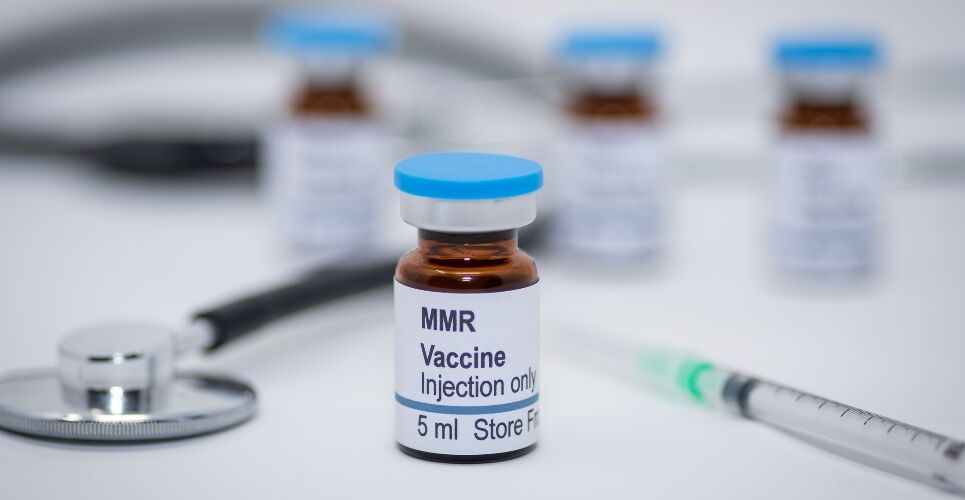Some secondary healthcare staff may be putting themselves at risk of contracting measles and spreading the virus to others by opting out of vaccination, a recent medical journal correspondence has suggested.
In a letter published in The Lancet, researchers from the University of Birmingham highlighted the ‘concerning gap’ in measles immunity among healthcare workers in the UK, with as many as one in five not fully immunised against the infection.
The risk is particularly high for younger workers born after 1998, where vaccine hesitancy leaves them vulnerable to infection and may facilitate the spread of the infection.
The researchers stated that all healthcare workers who come in contact with patients should have their immune status assessed. If they are found not to have immunity, they should be offered a measles-containing vaccination, as recommended in the national measles guidelines.
In January 2024, the UK Health Security Agency declared the rapid increase in measles cases a national incident. The measles vaccination programme has successfully reduced measles transmission in the UK in the past. However, erroneous concerns about the safety of the MMR vaccine undermined this effort, resulting in a recent rise in infections.
Using data from the VIBRANT study, which looks at the immune response of healthcare workers across the UK and is a substudy of the UK SIREN study, the researchers examined the immune system of 200 healthcare workers recruited from NHS hospitals across the UK. The cohort had a median age of 51 and was 81% female.
An additional, younger cohort with a median age of 42 was also examined. The second cohort was recruited from the CoCo study and involved 413 healthcare workers, three-quarters of whom were female.
Using the anti-measles virus ELISA (IgG) – a laboratory test that can detect and measure the presence of IgG antibodies against the measles virus – the researchers determined levels of protection against measles, alongside clinical and demographic characteristics of the participants.
In both cohorts, the researchers found that measles immunity is currently suboptimal. Increasing age was linked with better immunological protection, with older healthcare workers having higher levels of immunity than younger colleagues. For every increasing year of age, the researchers found the odds ratio of returning a positive IgG result increased by 1.06.
In the first cohort of 200 participants, six (3%) had no measles immunity and eight (4%) had unclear results, meaning immunity levels could not be determined. In the second cohort of 415 younger workers, 54 (13%) were negative for measles antibodies and 31 (8%) had equivocal results.
Professor Alex Richter, professor and honorary consultant in clinical immunology at the University of Birmingham and lead author of the paper, said: ‘Our new research highlights a concerning gap in measles immunity among healthcare workers, who may unwittingly be putting themselves and vulnerable populations at avoidable risk.’
She added: ‘Healthcare workers in patient-facing roles, especially those working with children and immune-compromised individuals, are at risk of contracting and spreading measles if they are not fully immune to measles.’
The researchers suggest the fall in immunity is partly due to the success of the measles vaccination programme. With so few measles cases in the last 20 years, people who remained unvaccinated were unlikely to acquire immunity through infection. In addition, concerns about the MMR vaccine, which emerged in 1998, could account for the compromised vaccine uptake in those born after this time, the researchers added.
Dr Antonia Ho, clinical senior lecturer and consultant in infectious diseases at the MRC-University of Glasgow Centre for Virus Research and first author of the letter, advised that healthcare workers should check their vaccine history if uncertain and be offered vaccination.
She added: ‘Vaccination remains the most effective method of controlling measles. Therefore, every effort should be made to support health care workers, who are on the front lines of patient care, to ensure they are protected against measles to safeguard themselves and their patients.’
A version of this article was originally published by our sister publication Nursing in Practice.

